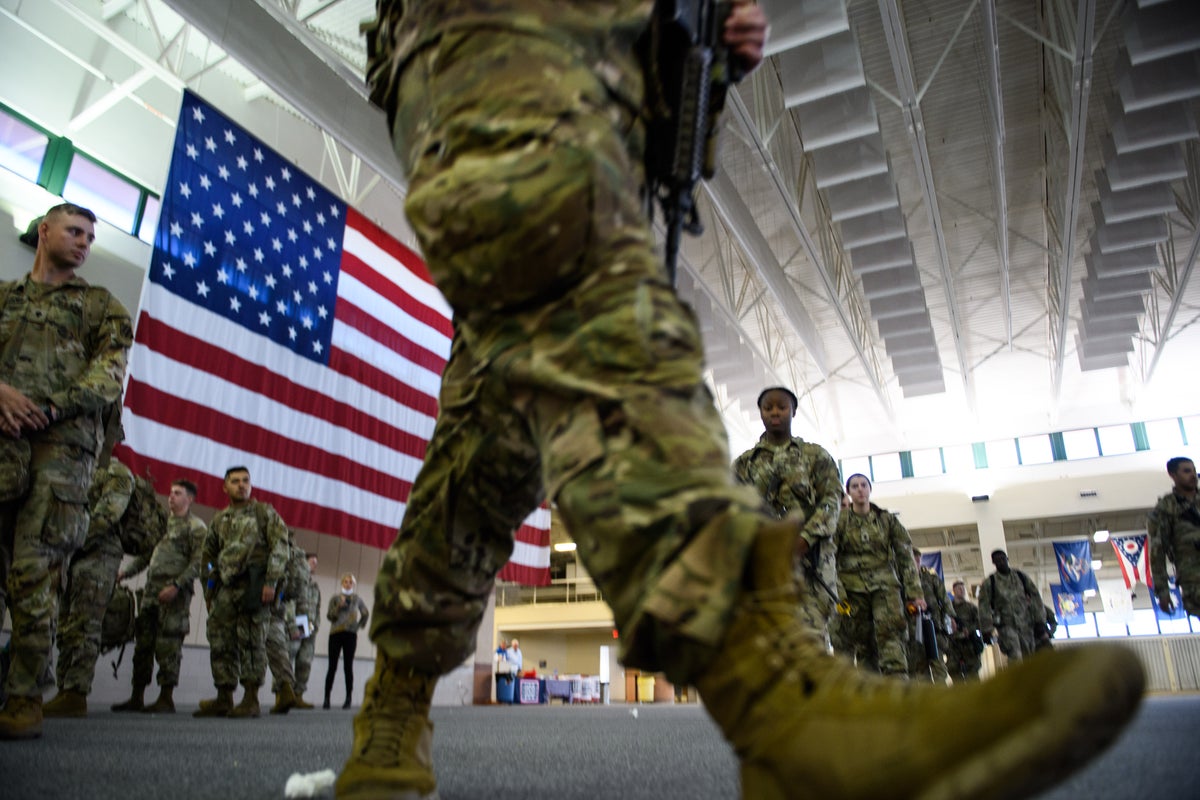
President Joe Biden signed an executive order on Thursday allowing the Pentagon to tap an additional 3,000 military reservists to support the US mission in Europe to bolster Nato amid the ongoing Russian invasion of Ukraine.
The additional troops will join the estimated 100,000 US service members already on the European continent.
"These authorities will enable the department to better support and sustain its enhanced presence and level of operations,” Lt Gen Douglas Sims told Military.com of the move.
Joe Biden with Volodomyr Zelensky at Nato summit— (Sean Gallup/Getty Images)
The current US mission in Europe, dubbed Atlantic Resolve, began in 2014, as Russia annexed Crimea and put pressure on Ukraine’s Donbas region, a prelude to its wider invasion in 2022.
So far, the US has sent more than $76bn in aid to Ukraine, according to the Council on Foreign Relations, more than $46bn of which has been military-related.
The additional US forces came as President Biden made a high-profile swing through Europe for Nato summit in Lithuania on Wednesday.
On Thursday, speaking from Helsinki, Mr Biden reiterated US support for Nato.
“There’s overwhelming support from the American people. There’s overwhelming support from the members of the Congress, both House and Senate, in both parties,” he said, though he conceded “some extreme elements” of the Republican Party feel differently.
The previous day, Mr Biden voiced his awe at the “unbroken” people of Ukraine,” who had shown “incredible dignity” in the face of Russia aggression.
“One country cannot be allowed to seize his neighbour territory by force,” Mr Biden said.
The US visit to Europe was not without its complications.
Shortly before the Nato summit, Mr Biden threw cold water on the idea of Ukraine joining the defensive organisation in the near term.
“I don’t think there is unanimity in Nato about whether or not to bring Ukraine into the Nato family now, at this moment, in the middle of a war,” he told CNN last week.
The president also said that Ukraine would need to make reforms in terms of “democratization” before joining the alliance.







